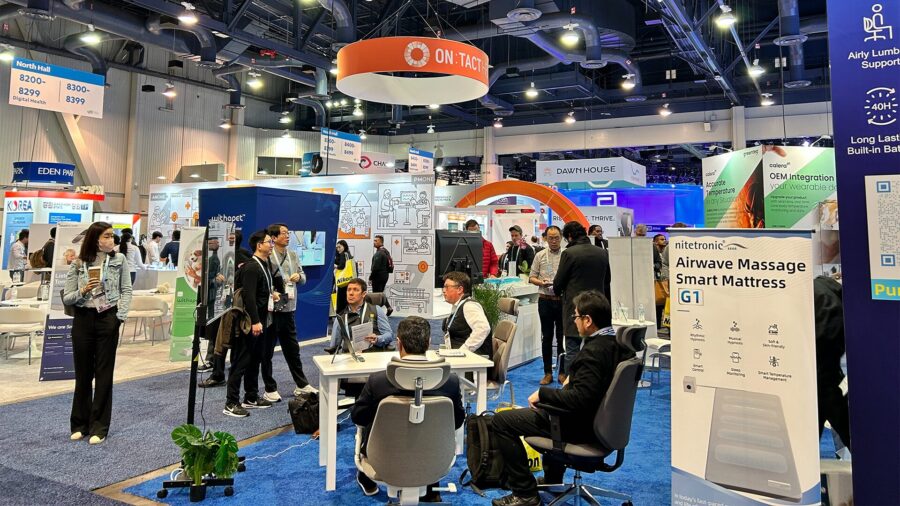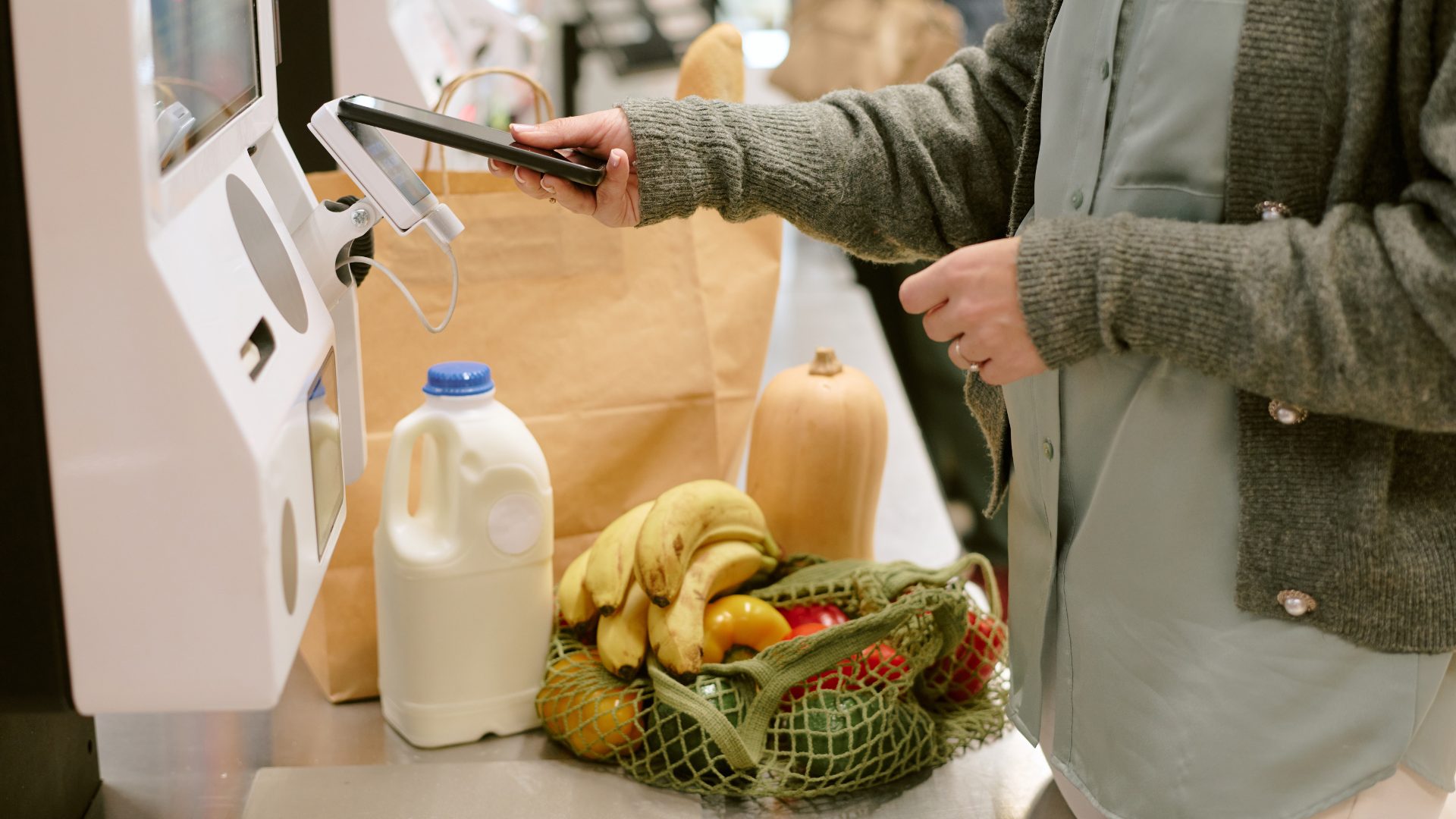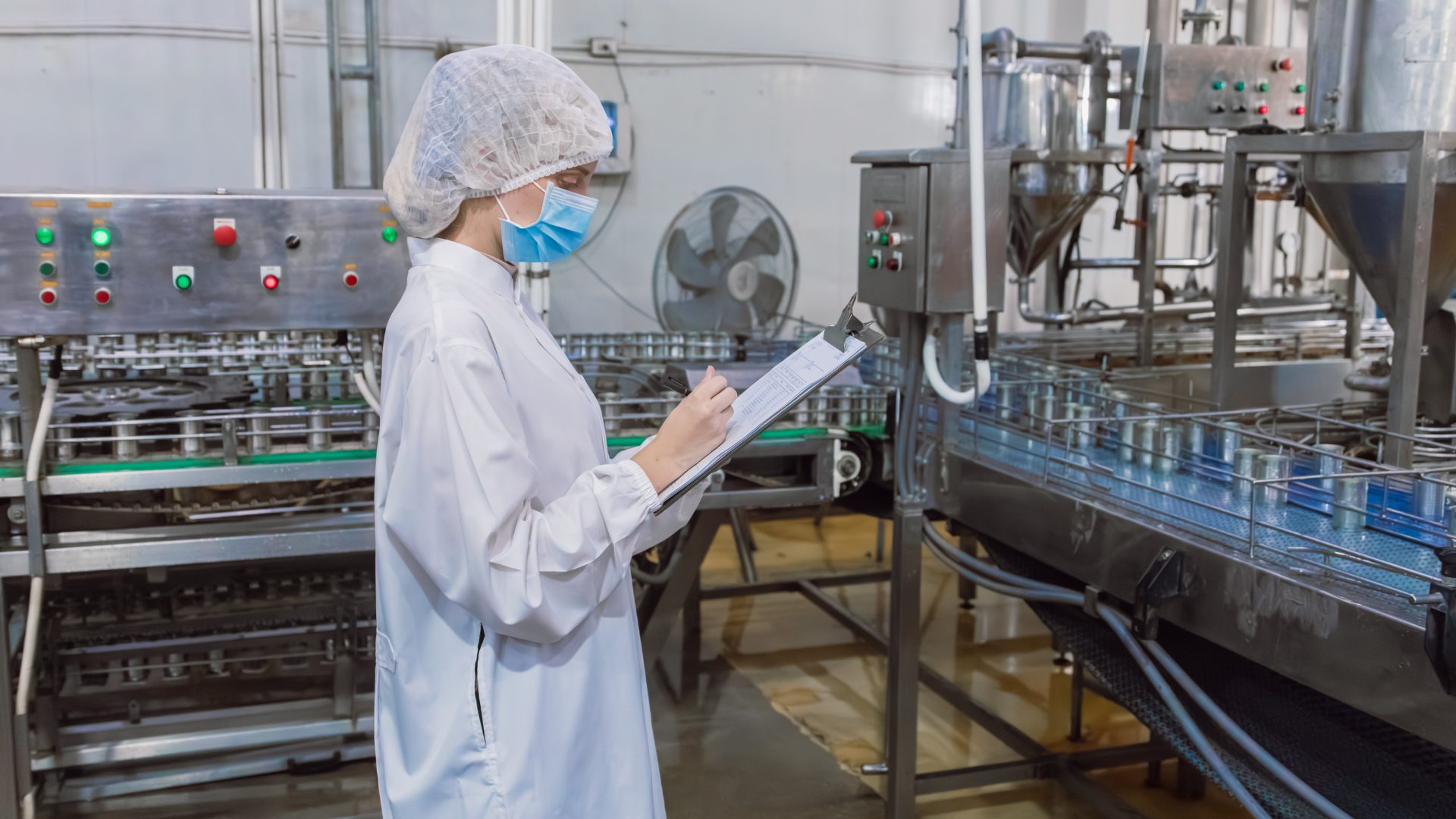This week, The Food Institute’s CEO, Brian Choi, and Digital Media Director Susan Choi are attending the hottest trade show in North America – CES 2024, presented by the Consumer Technology Association. This year’s show highlights the hottest tech trend in years – artificial intelligence.
AI experienced a business boon in recent months, due to its generative capabilities and most familiar to consumers and C-suite executives alike in the form of ChatGPT, Sam Altman’s lauded open platform, and all its possibilities in analytics, efficiencies, and solutions.
“[CES] feels like the first time, every time,” said Brian Comiskey, director of thematic programs at CTA, later describing the show, the technology, and all the industry participants from gaming to agritech to FoodBev, “a little like EPCOT, with a taste of tomorrow,” evoking a sense of wonder for all attendees.
“The innovations and advances in one technology often influence the advances of another because the world demands it,” he added Tuesday, during his keynote address.
While the presentation touched on many macro themes and trends without diving too deeply into any particular industry, the keynote made clear that the future belongs to Gen Z and that it will be riddled with technology once only imagined on The Jetsons:
- There are almost 70 million Gen Zers (11-26 years old)
- 86% say technology is essential to their lives
- 90% of Gen Z reside in emerging markets around the globe
- 1 billion more Gen Zers are expected to come online by 2027
“The technologies best able to balance consumer demands and enterprise are the ones that rapidly advance and push societal transformation,” Comiskey said when describing some of the many vendors at the show this week, citing an internal CTA study that revealed – despite AI’s looming ascendance against almost 100 years of apocalyptic sci-fi warnings – that most people are generally OK with where we are with artificial intelligence.
Decoding Consumer Sentiment on AI
- 42% of the respondents believe AI is innovative.
- 36% believe AI is futuristic.
- 35% believe AI is intelligent.
- Less than 25% believe it to be scary (23%), intimidating (19%), malicious (5%), trustworthy (4%), secure (3%), and safe (2%).
The Blurring Industries of F&B, Wellness, & More
Comiskey cited three areas of extreme growth potential with AI applications: food, mobility, and gaming. The ability for AI to disrupt the FoodBev industry is already here, from Sweetgreen’s automated Infinite Kitchen concept to the sheer volume of AI-assisted kiosks, drive-thrus, and rapid proliferation of retail media networks, which leverage voluntary user data to craft live, relevant advertising to shoppers from within the well-lit aisles of Walmart, Costco, and more.
Comiskey noted that Siemens and Nvidia have already developed an industrial metaverse using digital twin technology to help companies envision (and enact) more efficient, safer, and higher-ROI production facilities. Meanwhile, a company named Midbar Air Farm is developing portable, sustainable farm containers that resemble giant shipping crates but can be used in dry, arid, and difficult landscapes to foster plant and crop growth and help solve food insecurity.
Meanwhile, health and wellness is also poised to transform as personalized, accessible, and intelligent technologies are being developed to help patients suffering from one condition to find solutions that address multiple pain points, such as helping solve anxiety.
Companies like Kubota are developing advanced smart tractors to focus on precision agriculture and automation to ensure food production amid labor shortages and a rapidly changing climate. From farm to kitchen, companies like Yo-Kai Express are developing autonomous robots to prepare gourmet-level meals at the touch of a button.
And that’s the tip of the proverbial iceberg from an initial keynote at CES.
Editor’s note: To follow along at the CES show, subscribe to The Food Institute’s Instagram page. To view a recent video interview with Brian Comiskey about the CES show, see below:










